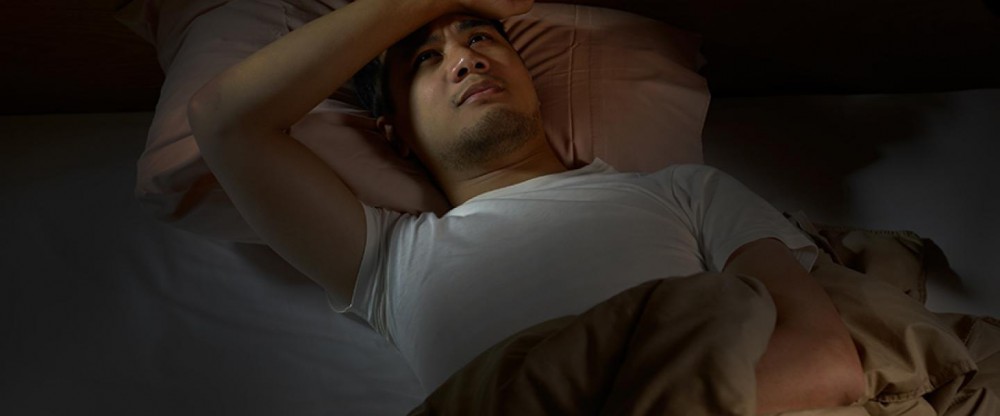Debunking Sleep Myths: Is the Only Symptom of Insomnia Having Trouble Falling Asleep?
Everyone dreads those long nights of tossing and turning when sleep just doesn’t seem to come. The issue is more common than you may think: Approximately 30 percent of adults in this country experience some kind of disrupted sleep.
If that sounds like you, you may wonder whether you have a case of insomnia, a complicated condition triggered by a range of medical, biological, or psychological factors. While the word is commonly used to describe a sleepless night, the symptoms of insomnia go beyond having trouble sleeping. About 10 percent of adults exhibit insomnia symptoms, leaving them functionally impaired during the day. If you have one or more of the following symptoms, consider talking with your doctor about insomnia, and ways to treat this frustrating condition.
Difficulty Sleeping
The sufferer has trouble falling or staying asleep which are most common markers of insomnia. If you frequently wake up at night and can’t get back to dreamland, or if you wake up too early in the morning and are unable to lull yourself back to sleep, you may be dealing with insomnia.
Fatigue and Low Energy
Feeling tired and lethargic are also hallmarks of insomnia. Even if you don’t recall waking during the night, you may rise in the morning and find your energy dragging. Known as non-restorative sleep, this is a marker for insomnia.
Moodiness
With a case of insomnia, you find yourself feeling out of sorts, irritable, or in a bad mood for reasons you can’t explain. Without enough nighttime rest, you may also experience anxiety, impulsiveness, or aggression.
Relationship Trouble
Having difficulty getting along with coworkers or finding it tough to focus when you’re on the job could be related to insomnia. Similarly, struggling with family members at home or friends at school may be signs of this sleep disorder. People faced with insomnia may have a hard time with their workload, make mistakes, miss deadlines, and forget to follow up on important tasks.
A Recurring Event
Frequency is a critical factor when it comes to determining whether a person has insomnia. If you’ve been having trouble sleeping for at least three nights a week over the course of three months or more, speak with your doctor.
Orexin receptor antagonists: A new class of sleeping pill Find out more about orexin, and a new type of sleep aid drug which may have fewer side effects.You don't have to struggle with sleepless nights. Help is available! There are treatment options for insomnia, ranging from behavioral therapy to the use of prescription medication or a combination of the two. Talk to your healthcare professional if you have any trouble falling asleep and/or staying asleep and to properly diagnose insomnia symptoms. Treatment options include: Behavioral therapy is...The term “anti-aging” may conjure up images of expensive wrinkle creams and nutritional supplements, but one of the most impactful...Though it may come as no surprise that people find it harder to fall asleep when they’re emotionally wound up,...Sleep problems like insomnia can be caused by many different factors, including chronic pain, acid reflux, and depression. But did...Sleep problems are common among kids who are anxious or who are making a transition to a new school. They...After safety and nutrition, how much sleep a child gets is uppermost in a parent’s mind. The amount your child...Some people use sleep hypnosis as a tool to help them fall asleep. In a nutshell, sleep hypnosis is a...As you scan the colorful boxes of sleep aids on the pharmacy shelf, it might seem easy to grab one...Whether you’re experiencing jet lag, shifting schedules at work, or adjusting to a new life routine, temporary use of over-the-counter...

Source: Internet





